Prince Harry in his own words: The Me You Can’t See
This is Harry, in his own words during Oprah Winfrey’s new docuseries The Me You Can’t See. WARNING: Graphic
World
Don't miss out on the headlines from World. Followed categories will be added to My News.
That feeling of being trapped within the family is … there was no option to leave. Eventually when I made that decision for my family, I was still told you can’t do this. Well, how bad does it have to get until I am allowed to do this? She was going to end her life … it shouldn’t have to get to that.
This is Harry, in his own words during Oprah Winfrey’s new docuseries The Me You Can’t See …
A ROYAL IN THERAPY
Oprah: What made me think you needed it
Harry: The past; to heal myself from the past.
For many, many years, I didn’t even think about it. I wasn’t holding onto it, I was unaware of it.
I always wanted to be normal as opposed to Prince Harry, just being Harry.
It was a puzzling life. Unfortunately when I think about my mum, the first thing that comes to mind is always the same one over and over again.
Strapped in the car, seatbelt across, with my brother in the car as well and my mother driving, being chased by 3, 4, 5 mopeds with paparazzi on and she was almost unable to drive because of the tears. There was no protection.
One of the feelings that comes up with me always is helplessness. Being too young, being a guy but being too young to be able to help a woman, in this case, your mother. And that happened every single day. Every single day until the day she died.
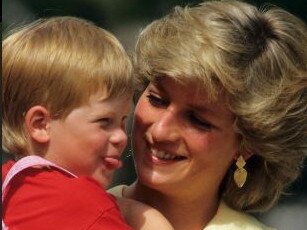
When my mum was taken away from me at the age of 12 just before my 13th birthday, I didn’t want the life, sharing the grief of my mother’s death with the world.
For me, the thing I remember most is the sound of the horses’ hoofs going along the Mall, the red brick road. By this point, both of us were in shock. It was like I was outside of my body and just walking along doing what was expected of me, showing one tenth of the emotion that everybody else was showing.
This is my mum, you never even met her.
I was so angry with what happened to her and the fact that there was no justice, at all, nothing came from that. The same people that chased her into the tunnel photographed her dying on the back seat of that car.
I didn’t want to think about her because if I thought about her, it’s going to bring up the fact that I can’t bring her back and it’s just going to make me sad … what’s the point of thinking about something sad? What’s the point of thinking about someone that you have lost and you are never going to get back again and I just decided not to talk about it.
No one was talking about it.
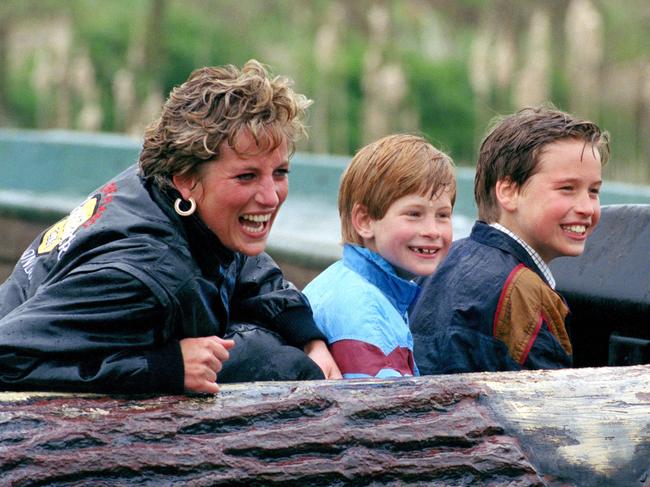
THE BOILING POINT
After that period of however many years it was, just like head in the sand, fingers in the ears, just crack on, people asked “How are you?” and I said “Fine”.
Never happy, never sad, just fine. Fine was the easy answer … but I was all over the place mentally.
Every time I put a suit and tie on and having to do the role (it was) ‘OK, game face on, look in the mirror, all right, let’s go’. Before I had even left the house, I was pouring with sweat and my heart rate was … I was in fight or flight mode. Panic attacks, severe anxiety and from 28 to probably 32 was a nightmare time in my life.
From freaking out every single time I jumped in the car and every single time I see a camera … I would just start sweating, I would feel my body temperature was about two or three degrees higher than everyone else in the room.
I would convince myself that my face was bright red and therefore everybody could see how I was feeling but no one would know why … so it was embarrassing. You get in your head about it … everybody is looking at me and one bead of sweat feels like the whole face is pouring down.
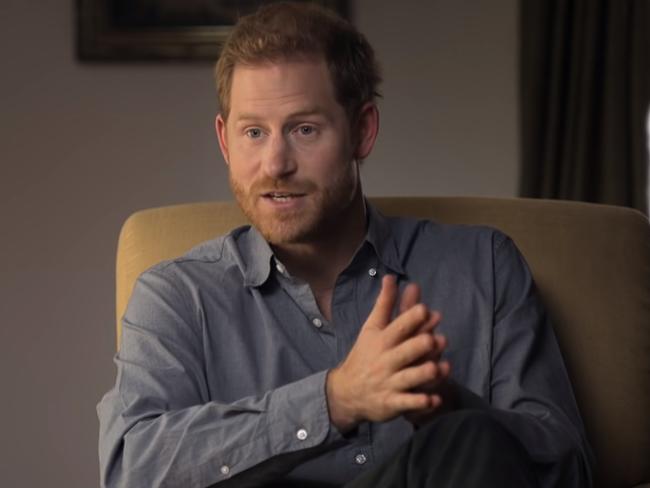
Everywhere I go, every single time I meet somebody, it’s like I’m being drained of this energy. Finally I would find someone who was sweating more than me and I would stop and be able to speak to them and everything would calm down and I could move on again.
I was willing to drink, I was willing to take drugs, I was willing to do the things that made me feel less like I was feeling. But I slowly became aware that OK, I wasn’t drinking Monday to Friday but I would probably drink a week’s worth in one day on a Friday or Saturday night. And I would find myself drinking not because I was enjoying it but because I was trying to mask something.
The happiest times of my life were the 10 years in the army. Without question, because I got to wear the same uniform as everybody else, I had to do the same training as everybody else, I started from the bottom like everybody else, there was no special treatment because of who I was. That was where I felt my most normal and actually within my younger years, the most comfortable I felt was out in Afghanistan, away from the media.
But I was going to have to deal with my past because there was anger there. I started asking questions in my late 20s “should I really be here” and that’s when I started suddenly going you can’t keep hiding from this.
Family members have said just play the game and your life will be easier. But I’ve got a hell of a lot of my mum in me. I feel as though I am outside the system but I’m still stuck there. The only way to free yourself and break out is to tell the truth.
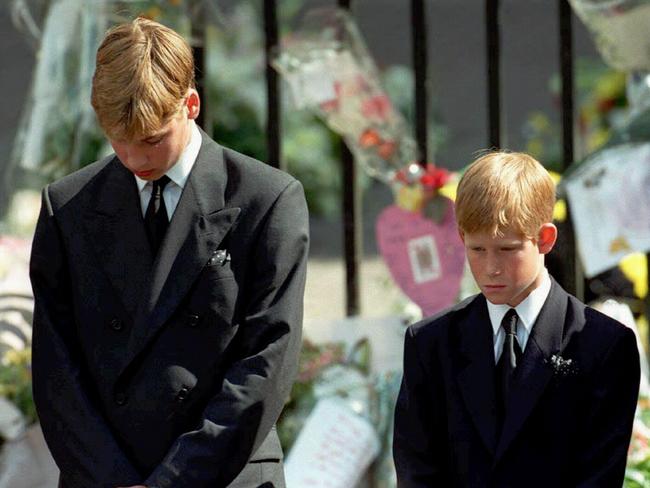
ASKING FOR HELP
But across society, across the world, with stigma and everything else that’s attached to it, mental health kinda gets left behind. But it’s also the invisible injury and the things that we can’t see and the things that we don’t understand scare us. And it’s hard to be able to talk about something that perhaps a lot of people don’t feel.
Oprah: The right question is ‘What’s happened to cause that person to have that kind of persistent or consistent behaviour?’
H: That strap line or whatever you want to call it, is now embedded in my brain, whenever something happens. Even when I’m on the receiving end of just hatred and vitriol, I remember that. What happened to you? What happened to them?
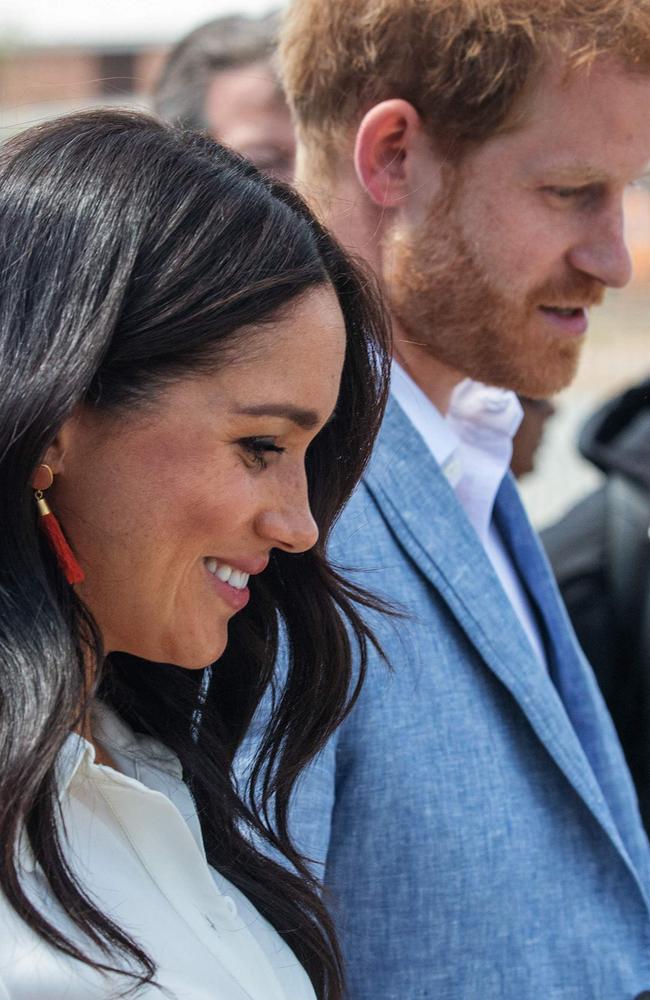
THE MEGHAN EFFECT
Towards my late 20s, everything became really hectic for me to the point of exhaustion. I was travelling all over the place because from the family’s perspective, I guess I was the person who was ‘We need someone to go there. Nepal, Harry, you go.’
I was always the one willing to say yes. But yes, yes, yes, yes, yes led to burnout. And it was like someone had taken the lid off and all of the emotions I had suppressed for so many years finally came to the forefront. I saw GPs, I saw doctors, I saw therapists, I saw alternative therapists, I saw all sorts of people but it was meeting and being with Meghan. I knew if I didn’t do the therapy and fix myself that I was going to lose this woman that I could see spending the rest of my life with.
(There was) A lot of learning at the beginning of their relationship. She was shocked to be coming backstage of the institution of the British royal family.
When she said I think you need to see someone, it was in reaction to an argument that we had. And in that argument, not knowing about it, I reverted back to 12 year old Harry.
The moment I started therapy, it was probably in my second session, my therapist said that sounds like you reverting to 12-year-old Harry. I felt somewhat ashamed and defensive like ‘How dare you, you’re calling me a child.’
She was “I’m not calling you a child. I’m expressing sympathy and empathy for you, for what happened to you when you were a child, you never processed it, you were never allowed to talk about it and all of a sudden now it’s coming up in different ways as projection.’
That was the start of a learning journey for me. I became aware I had been living in a bubble within this family, within this institution and I was sort of almost trapped in a thought process, a mindset.
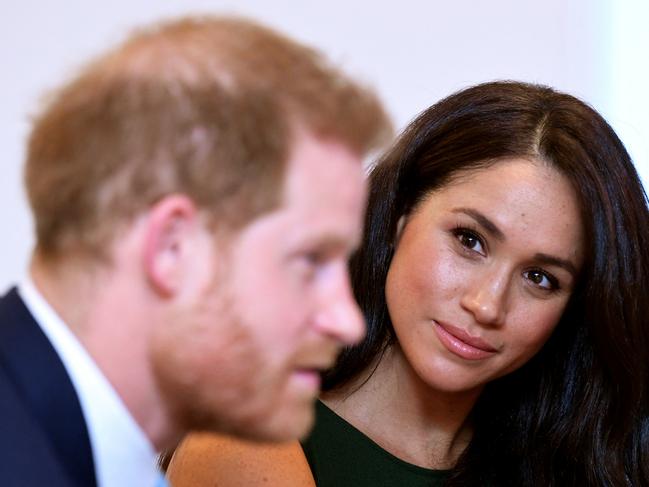
THE RACISM
Eight days into our relationship becoming public, the headlines ‘Harry’s girl Straight Outta Compton’ … and ‘her exotic DNA will be thickening the royal blood.’
The clicking of cameras and the flashing of cameras makes my blood boil, it makes me angry, it takes me back to what happened to my mum, what I experienced as a kid but it went to a whole new depth with not just traditional media but also social media platforms.
And I felt completely helpless. I thought my family would help but every single ask, request, warning, whatever it is, was meant with total silence or total neglect.
We spent four years trying to make it work, we did everything that we possibly could to stay there and carry on doing the role and doing the job.
But Meghan was struggling. People have seen the photograph of us squeezing each other’s hands as we walked into the Royal Albert Hall in London for a charity event. She’s six months pregnant at the time. Perhaps what people don’t understand is earlier that evening Meghan decided to share with me the suicidal thoughts and the practicalities of how she was going to end her life. The scariest thing for her was the clarity of her thought.
She hadn’t lost it, she wasn’t crazy, she wasn’t self medicating through pills or alcohol. She was absolutely sober, she was completely sane yet in the quiet of night these thoughts woke her up.
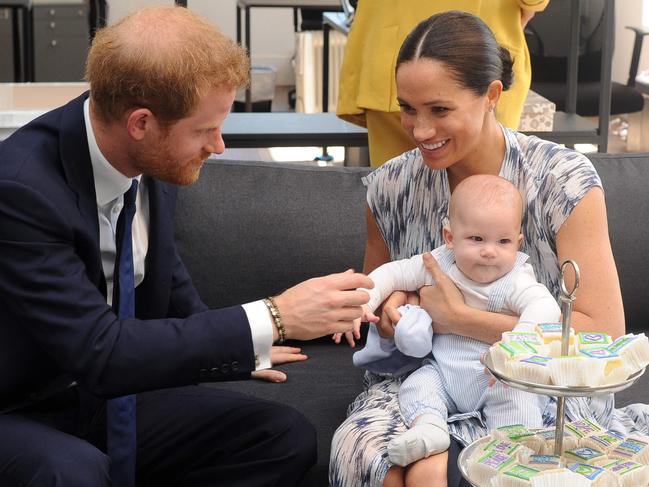
And the thing that stopped her seeing it through was how unfair it would be on me, after everything that had happened to my mum and now to be put in the position of losing another woman in my life, with a baby inside of her, our baby, I am somewhat ashamed of the way I dealt with it.
And of course the system we were in and the responsibilities and duties that we had, we had a quick cuddle and then we had to get changed and jump into a convoy with a police escort and drive to the Royal Albert Hall to a charity event. And step out into a wall of cameras and pretend as though everything is OK. There wasn’t an option to say ‘You know tonight, we’re not going to go’ because just imagine the stories that come from that.
While my wife and I were in those chairs, gripping each other’s hand, the moments the lights go down, Meghan starts crying, I’m feeling sorry for her but I’m also really angry with myself that we’re stuck in this situation. I was ashamed that it got this bad, I was ashamed to go to my family because to be honest with you, like a lot of people my age could relate to, I know that I’m not going to get from my family what I need.
I then had a son who I would far rather be solely focused on rather than every time I look into his eyes wondering whether my wife is going to end up like my mother and I’m going to have to look after him myself. That was one of the biggest reasons to leave, feeling trapped and feeling controlled through fear both by media and by the system itself which never encouraged the talking about this kind of trauma. It’s only now I will never be bullied into silence.
THE LIVE THERAPY SESSION
H: How do I fix this?
You have to go back to the past, back to the point of trauma and deal with it, process it and then move forward. Having now done therapy for four and a bit years, five years now, for me, it’s all about prevention.
Someone to talk to when feeling pain, the tools available to us every day to make sure it doesn’t snowball into something bigger.
EMDR was always something that I wanted to try and it’s one of the different forms of healing or curing that I was willing to experiment with. And I would never have been open to that if I hadn’t put the work into therapy I’ve done over the years.
For most of my life, I’ve always felt worried, concerned, a little bit tense and uptight whenever I fly back into the UK, into London. And I could never understand why.
Why do I feel so uncomfortable? For me, London is a trigger, unfortunately, because of what happened to my mother and what I experienced and what I saw.
It happens every time. The anxiety is a hollow, empty feeling of almost … is it fear? Everything feels tense.
Therapist Sanja Oakley: What is the negative thought you have about yourself now.
H: About being the hunted and being helpless, knowing you can’t do anything about it, there is no escape. There is no way out of this.
S: What do you prefer to believe about yourself now?
H: I’m not helpless, it’s only for a brief moment in time and you’re living your life by truth, there’s nothing to be worried about.
One of the first times I left the UK, to get away from all the fallout of my mum’s death was to go to Africa. I think I was out there for at least two weeks and it was such a cure. I felt so free, it was a sense of escapism that I’d never felt before. And to then to come back to the UK knowing what I was going to be confronted with and knowing that I couldn’t get away from was scary.
I guess this is the trauma of it, that feeling and moments of the past are so deeply connected to the present. (tapping, closes his eyes). The trauma is very much geographical.
What’s really nice, and I don’t know if this is the intention, it cleans my hard drive. Calmness and strength; strength because of the calmness.
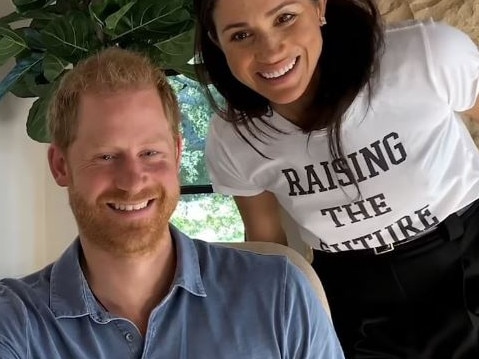
ESCAPING TO AMERICA
Therapy has equipped me to be able to take on anything; that is why I am here now, that’s why my wife is here now. That feeling of being trapped within the family is … there was no option to leave. Eventually when I made that decision for my family, I was still told you can’t do this. Well, how bad does it have to get until I am allowed to do this? She was going to end her life … it shouldn’t have to get to that.
Do I have any regrets? Yeah. My biggest regret is not making more of a stance earlier on in the relationship with my wife and calling out the racism. History was repeating itself.
My mother was chased to her death while she was in a relationship with someone who wasn’t white and now look what’s happened. You want to talk about history repeating itself? They won’t stop until she dies. It’s incredibly triggering to potentially lose another woman in my life. Like, the list is growing and it all comes back to the same people, the same business model, the same industry.
My father used to say to me when I was younger, to both William and I, well it was like that for me so it’s going to be like that for you. That doesn’t make sense. Just because you suffered, that doesn’t mean your kids have to suffer. In fact, quite opposite, if you suffered, do everything you can to make sure whatever negative experiences you had that you can make it right for your kids.
We chose to put our mental health first … and that’s what we will continue to do. Isn’t this all about breaking the cycle? Isn’t this all about making sure history doesn’t repeat itself? That whatever pain and suffering has happened to you that you don’t pass it on?
IF YOU NEED HELP PLEASE CALL:
Lifeline Australia – 13 11 14 (available 24/7)
Text 0477 13 11 14
Chat online: lifelife.org.au (7pm-midnight)
Kids Helpline – 1800 55 1800
Kidshelpline.com.au
Beyond Blue – 1300 224 636 (available 24/7)




